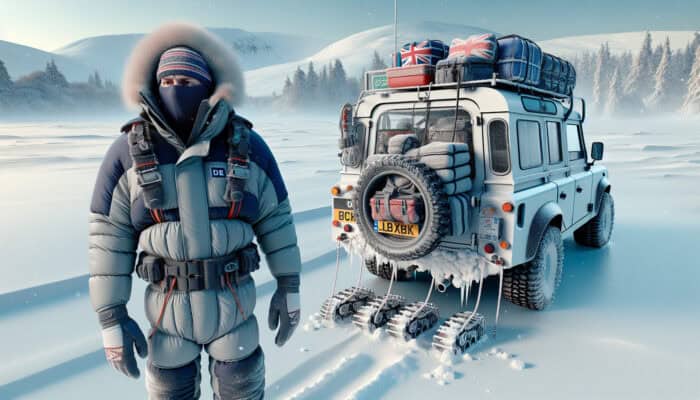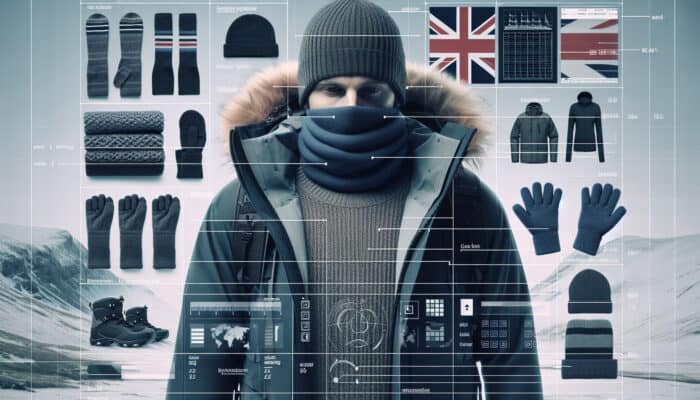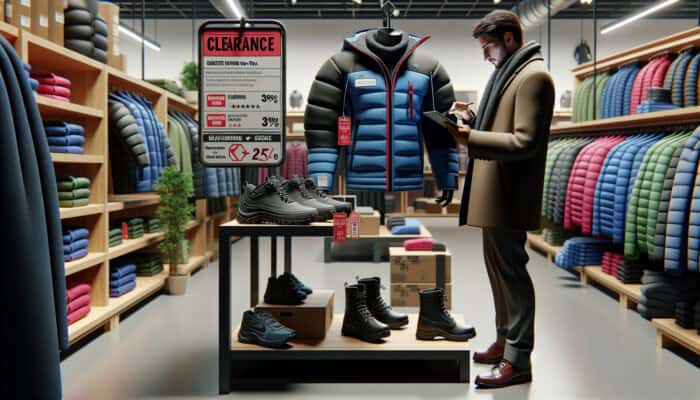Key Preparations for Safe Winter Travel Across the UK
What Essential Items Should You Include in Your Winter Travel Packing List?

When embarking on a winter journey in the UK, selecting the right gear is critical for enhancing both safety and comfort. Given the unpredictable nature of UK winter weather, thorough preparation is not just advisable—it’s essential. Some of the most important winter travel essentials include durable clothing layers, crucial vehicle accessories, and vital emergency supplies. It is important to ensure that your clothing not only provides adequate insulation but also allows for mobility, while your vehicle should be equipped to effectively handle icy conditions.
Some key items you should definitely pack for winter travel consist of:
- Thermal base layers that provide warmth
- Waterproof and insulated jackets to guard against harsh weather
- Sturdy winter boots offering excellent grip
- Ice scrapers and snow brushes for vehicle upkeep
- First aid kits for emergencies
- Portable phone chargers to stay connected
- Emergency blankets for extra warmth
- Non-perishable snacks and water for sustenance
Equipping yourself with these crucial essentials not only prepares you for various winter scenarios but also provides peace of mind as you navigate through stunning winter landscapes. Always remember to tailor your kit to suit your specific travel needs and the nature of your journey.
How Can You Effectively Check Road Conditions in the UK Before Travelling?
Staying updated about road conditions during winter is vital for ensuring safe travel. In the UK, adverse weather can create rapidly changing conditions, making it imperative to check for updates prior to your departure. The best resources for obtaining this information include the Highways England website, local news outlets, and dedicated mobile applications like Waze or Google Maps, which provide real-time traffic updates.
To efficiently check road conditions, follow these actionable steps:
- Visit the Highways England website for official updates on road conditions.
- Utilise traffic applications like Waze to see live conditions reported by other drivers.
- Check social media for local posts on road conditions from councils or traffic agencies.
- Listen to local radio stations for current traffic reports and alerts.
By consistently monitoring these resources, you can avoid road closures and delays, ensuring a smoother travel experience, regardless of the winter weather. Awareness and preparation are your best allies on the road.
What Are the Most Effective Winter Vehicle Maintenance Practices?
Preparing your vehicle for winter is crucial for ensuring safety and reliability during the colder months. The UK can experience a range of winter weather, from snow to heavy rain, making it essential to ensure your vehicle is in peak condition to avoid breakdowns and accidents. Prioritising regular maintenance checks before winter arrives can significantly improve your driving experience.
Essential maintenance tasks to perform before winter include:
- Checking and replacing antifreeze levels to prevent freezing
- Ensuring tyres have adequate tread depth and are properly inflated
- Testing the battery to prevent failures in cold weather
- Inspecting brakes for optimal performance
- Replacing windscreen wipers and ensuring all lights are functional
Taking these steps will not only prepare your vehicle for harsh winter elements but will also enhance your overall driving experience. Regular maintenance checks not only promote safety but can also save you money in the long run by preventing costly repairs.
How Should You Dress Appropriately for UK Winter Weather?

Choosing the right clothing for winter weather in the UK involves understanding the principles of layering and selecting suitable materials. The unpredictable nature of British winter necessitates the ability to adapt your outfit as conditions shift. Layering provides effective temperature regulation, keeping you warm and dry when exposed to the elements.
When selecting your winter clothing, consider these important tips:
- Wear moisture-wicking base layers to keep moisture away from your skin.
- Opt for insulating mid-layers like fleece for additional warmth.
- Choose a waterproof and windproof outer layer to shield against harsh weather.
- Select thermal socks and gloves to keep your extremities warm.
By layering effectively, you can adjust your clothing throughout your travels, whether you are hiking in the countryside or navigating urban environments. Always prioritise quality materials that can withstand the rigours of winter weather.
Expert Insights on Winter Transport Tips for Clearance Items
What Makes Clearance Items a Smart Choice for Winter Travel?
Purchasing clearance items for winter transport can be both cost-effective and practical. Retailers often discount seasonal items as winter approaches, making this an opportune time to invest in the gear or supplies necessary for colder months. The combination of savings with the availability of high-quality products makes clearance shopping a savvy choice.
Real-world examples highlight the advantages of buying clearance items. For instance, many outdoor retailers offer substantial reductions on winter clothing and equipment as they adjust their inventory for the new season. Similarly, automotive stores may discount winter tyres or accessories, making it easier to prepare your vehicle for winter conditions without overspending. By carefully selecting clearance items, consumers can secure high-quality products at a fraction of the original price, showcasing the value of strategic shopping during winter.
How Can You Evaluate the Quality of Clearance Items?

Identifying high-quality clearance items can be challenging, but knowing what to look for can significantly enhance your winter preparations. Quality should never be compromised, even when shopping at discounted prices. Focus on assessing the durability, functionality, and design of the products to ensure they meet your winter transport needs.
To evaluate clearance items effectively, consider the following factors:
- Inspect the materials used; look for durable fabrics like Gore-Tex for clothing.
- Check the stitching and construction for signs of quality craftsmanship.
- Read customer reviews to gauge performance and reliability.
- Ensure items come with warranties or satisfaction guarantees.
By adhering to these guidelines, you can confidently select clearance items that will deliver value and longevity throughout the winter season. Remember that quality is paramount, even when seeking bargains.
What Strategies Can You Implement for Timing Your Clearance Purchases?
Timing your purchases of clearance items can maximise savings and selection, especially during winter. Retail cycles often dictate when clearance sales occur, so being informed about these patterns can help you shop smartly. Understanding when retailers mark down seasonal items will enable you to effectively plan your shopping trips.
Consider these actionable steps for timing your purchases:
- Monitor sales calendars; major holidays like Black Friday often lead to clearance events.
- Sign up for newsletters from retailers to receive early notifications of sales.
- Follow brands on social media for exclusive offers and clearance announcements.
- Visit stores or websites regularly during the transition between seasons.
By strategically planning your shopping based on these insights, you can take advantage of sales and ensure you have everything needed for safe and comfortable winter travel without overspending.
Navigating Public Transport Effectively During Winter Months in the UK
What Should You Know About Winter Schedules for Public Transport in the UK?
Winter weather can significantly impact public transport schedules in the UK, leading to delays and service changes. Understanding how these alterations affect your journey is vital for seamless travel. Public transport operators often adjust schedules to accommodate adverse weather conditions, resulting in unexpected changes in timetables.
To navigate public transport during winter effectively, consider these tips:
- Check online timetables frequently for updated winter schedules.
- Sign up for notifications from transport services for real-time updates.
- Plan your travel during off-peak hours when services are more likely to run smoothly.
- Have contingency plans in place for alternative routes or modes of transport.
Remaining informed about potential disruptions can minimise frustration and keep your travel plans on track during the winter months. Preparation is key, and being proactive about checking schedules can make all the difference in your winter travel experience.
How Should You Dress for Comfort on Public Transport in Winter?
Choosing appropriate clothing for public transport during winter in the UK is essential for ensuring comfort and warmth. The transition from outdoor to indoor environments can lead to discomfort if not adequately addressed. Layering is again the best approach, allowing you to adapt to varying temperatures throughout your journey.
Key points for dressing for public transport include:
- Wear breathable layers that can be easily removed or added as needed.
- Choose insulated outerwear that is also stylish for urban environments.
- Invest in comfortable footwear suitable for both walking and standing.
- Utilise accessories like hats and scarves to keep warm without overheating indoors.
By selecting the right attire, you not only ensure comfort but also enhance your confidence while travelling. Being mindful of temperature variations and the need for mobility allows you to travel comfortably on public transport, even in the chilliest conditions.
What Essential Safety Guidelines Should You Follow When Using Public Transport in Winter?
Safety is paramount when using public transport during winter. The combination of wet, icy conditions and the hustle of urban environments can pose various risks. Therefore, being conscious of your surroundings and taking practical safety measures is crucial for a worry-free journey.
Here are some essential safety measures:
- Always wait in well-lit areas and be aware of your surroundings to deter potential threats.
- Watch your step when boarding or disembarking, as surfaces may be slippery.
- Keep your belongings secure and within sight to deter theft.
- Stay hydrated and nourished to maintain energy levels during long waits.
By incorporating these safety tips into your winter transport routine, you can reduce the risks associated with winter travel and focus on reaching your destination safely and efficiently.
How to Effectively Plan Your Journey During Winter?
Effective journey planning during the winter months is essential for navigating potential disruptions in public transport. Weather conditions can lead to delays, so being proactive in your planning can save time and stress. Use available technology to stay informed about developments and streamline your travel experience.
To plan your winter journey effectively, follow these guidelines:
- Check weather forecasts in advance to gauge potential disruptions.
- Use transport apps for real-time updates on delays and cancellations.
- Consider alternative routes or modes of transport if your usual path is disrupted.
- Leave earlier than usual to account for potential delays.
By anticipating challenges and being adaptable, you can minimise the impact of winter weather on your travel plans, ensuring a smoother journey through the colder months.
How to Manage Winter Disruptions on Public Transport?
Winter disruptions are common in public transport systems across the UK, and understanding how to handle these situations can alleviate stress and frustration. Whether faced with cancellations or significant delays, having a plan can help you navigate the situation effectively.
Consider these strategies for managing disruptions:
- Stay updated via transport apps or social media for the latest information on service changes.
- Have a backup plan, including alternative routes or modes of transport.
- Know your rights regarding refunds or compensation for delays.
- Use waiting times productively, such as catching up on reading or work.
By remaining calm and staying informed, you can easily navigate the challenges posed by winter disruptions in public transport and maintain your composure while working towards your destination.
How Do Winter Weather Conditions Affect Transport Systems in the UK?
What Are the Effects of Snow and Ice on UK Roads?
Snow and ice can significantly impact road safety and traffic flow in the UK during winter. Adverse weather conditions often lead to hazardous driving situations, causing accidents and delays. Understanding these challenges is integral for drivers to adapt their behaviour and maintain safety on the roads.
Common issues resulting from snow and ice include:
- Reduced visibility, making it difficult to judge distances and speeds.
- Slippery roads that increase the likelihood of skidding and accidents.
- Increased stopping distances when brakes are applied.
- Traffic congestion as vehicles struggle to navigate icy roads.
To overcome these challenges, drivers must adjust their driving styles. Slowing down, increasing following distances, and ensuring vehicles are equipped with winter tyres can help mitigate risks associated with icy conditions. Awareness and adaptation are key to navigating UK roads safely during winter weather.
What Risks Should Drivers Be Aware of During Winter in the UK?
Driving in the UK during winter poses specific risks, primarily due to the effects of icy conditions and reduced visibility. These elements can significantly alter the driving experience, demanding heightened awareness and adaptation from drivers. Understanding these risks is crucial for ensuring safety behind the wheel.
Key risks associated with winter driving include:
- Black ice, which can form without warning and is often invisible.
- Reduced traction on snowy or icy surfaces, leading to potential loss of control.
- Low visibility caused by fog, snow, or heavy rain.
- Increased fatigue as drivers must concentrate more intensely on the road.
To navigate these risks, drivers should prioritise preparation, including equipping their vehicles with appropriate tyres and ensuring effective visibility with functioning lights and wipers. By adopting safe driving practices, individuals can mitigate the dangers of winter driving and protect themselves and others on the road.
How Should You Prepare for Severe Winter Storms in the UK?
Preparing for severe winter storms in the UK is vital to ensure safety and minimise disruptions. The unpredictability of winter weather can lead to treacherous conditions, making it essential to have an emergency plan in place. Preparation includes securing essential supplies and staying informed about potential weather developments.
Key preparations for winter storms include:
- Assembling an emergency kit with food, water, and medical supplies.
- Staying informed through weather alerts and local news channels.
- Having a plan for alternative accommodation if travel becomes impossible.
- Ensuring that your vehicle is adequately prepared for severe weather conditions.
By proactively preparing for winter storms, individuals can enhance their safety and ensure they are ready to respond to any emergency. Remaining vigilant and having contingency plans will make navigating severe weather easier and reduce stress when faced with winter challenges.
Effective Strategies for Finding Winter Transport Clearance Deals in the UK
Where Can You Discover the Best Clearance Deals for Winter Travel Items in the UK?
Finding clearance deals on winter transport items in the UK can significantly reduce costs and facilitate smart purchases. Many retailers offer substantial discounts as seasons change, making it essential to know where to look. Notably, both physical stores and online retailers can provide excellent clearance opportunities.
Top places to find clearance deals include:
- Online marketplaces like Amazon or eBay frequently feature discounted items.
- Local department stores often clear out winter stock at the end of the season.
- Specialist outdoor retailers that mark down seasonal gear.
- Warehouse clubs or discount retailers that offer bulk purchasing options.
By actively seeking out these venues, you can maximise your chances of finding quality items at reduced prices. The best deals often come from a combination of online shopping and visits to local stores, allowing you to compare prices and selection effectively.
What Essential Features Should You Look for When Purchasing Clearance Items?
When purchasing clearance items for winter transport, identifying key features can enhance value and ensure durability. Not all discounted items are created equal, so knowing what distinguishes high-quality products is essential for making informed purchases.
Essentials to look for when assessing clearance items include:
- Enduring materials that can withstand winter conditions, such as water-resistant fabrics.
- Functional designs that cater to specific winter activities, such as skiing or hiking.
- Positive customer reviews that highlight reliability and performance.
- A reasonable warranty or return policy that protects your investment.
Understanding these features will guide you towards making worthwhile purchases during clearance events. High-quality clearance items can offer substantial savings while also ensuring that you are well-equipped for winter activities.
How Can You Successfully Negotiate Prices on Clearance Items?
Negotiating prices on clearance items can lead to additional savings, particularly as retailers are often keen to sell off remaining stock. Successfully negotiating requires confidence and a strategic approach to ensure you secure the best deals possible.
Effective strategies for negotiating prices include:
- Researching prices online to establish a baseline for negotiations.
- Being polite and friendly when engaging with sales staff can often lead to better results.
- Highlighting any flaws or issues with the item as leverage for a lower price.
- Expressing genuine interest in purchasing while asking if further reductions are possible.
By utilizing these tactics, you can increase your chances of securing attractive discounts on clearance items. Building a rapport with store staff can often lead to unexpected deals, making negotiation a valuable skill in your winter shopping arsenal.
When Is the Best Time to Buy Clearance Items for Winter Transport?
Timing your purchase of clearance items is essential for maximizing savings and ensuring availability. Knowing when retailers typically offer significant markdowns can help you plan effective shopping trips and make the most of seasonal sales.
Optimal times to buy clearance items include:
- Immediately after the holiday season, as retailers clear out excess stock.
- At the end of winter, as stores prepare for spring inventory.
- During major sales events like Black Friday or Cyber Monday.
- When new models or styles are released, prompting discounts on older stock.
By aligning your shopping habits with these timings, you can secure the best possible deals on winter transport items. Being proactive in your approach will ensure you obtain quality products at reduced prices without compromising on the essentials needed for winter travel.
How Can You Ensure Quality When Buying Clearance Winter Transport Items?
Ensuring the quality of clearance winter transport items is vital for long-term satisfaction and safety. Not all discounted products are of high quality; therefore, knowing how to assess items effectively can guide you toward making informed purchasing decisions.
Key tips for evaluating quality include:
- Inspecting the product for defects or signs of poor craftsmanship.
- Reading product descriptions carefully to understand materials and features.
- Reviewing customer feedback to gauge experiences with the item.
- Being familiar with reputable brands known for quality products.
By following these guidelines, you can confidently select clearance items that will withstand the rigours of winter travel. Ensuring quality should always be a priority, even when shopping for discounted products, to secure the best value and performance.
What Are the Most Effective Winter Transport Options Available in the UK?
What Are the Advantages of Choosing Trains for Winter Travel in the UK?
Trains offer a reliable means of transport during the winter months in the UK. Their ability to operate efficiently in various weather conditions makes them an attractive choice for many travellers. Trains provide a comfortable and safe alternative to driving, especially during adverse weather when roads may be treacherous.
Key benefits of utilising trains for winter travel include:
- Reduced risk of weather-related delays compared to road transport.
- Comfortable seating and onboard amenities that enhance the travel experience.
- Access to routes that may be less impacted by winter weather.
- Opportunities to relax and enjoy the scenery while travelling.
The reliability of train services during winter can help ease the worries associated with weather challenges, making them a preferred choice for journeys across the UK. By opting for train travel, passengers can enjoy the peace of mind that comes with a well-established transport option.
What Are the Benefits of Using Buses and Coaches During Winter in the UK?
Buses and coaches also provide valuable transport options during the winter months in the UK. They often serve routes that may not be accessible by train and can offer greater flexibility. With competitive pricing, they are an economical choice for winter travel, making them appealing for various budgets.
The advantages of using buses and coaches include:
- Cost-effective fares compared to other modes of transport.
- Comprehensive route networks that cover both urban and rural areas.
- Comfortable seating and amenities such as Wi-Fi available in many services.
- Environmental benefits, as coaches are generally more fuel-efficient per passenger.
Incorporating bus and coach travel into your winter transportation plans can provide the necessary flexibility and affordability needed during colder months. They serve as reliable alternatives to other forms of transport, particularly for shorter distances.
How Can You Choose the Right Mode of Transport for Winter in the UK?
Selecting the best transport mode for winter travel in the UK requires careful consideration of several factors. Weather conditions, travel distance, and personal preferences all play a role in determining the most appropriate option. Evaluating these factors will help you make informed decisions that ensure a smooth travel experience.
When choosing your transport mode, consider the following:
- Assess weather forecasts to determine the safest and most reliable option.
- Evaluate the distance and time required for your journey.
- Consider personal comfort and convenience, especially for longer trips.
- Factor in costs, including potential parking fees or fuel expenses if driving.
By weighing these considerations, you can select a transport mode that best meets your needs during winter. A thoughtful approach will ensure that you arrive at your destination safely and comfortably, regardless of the challenges posed by the season.
Crucial Winter Transport Safety Tips for the UK
What Essential Safety Gear Should You Have for Winter Travel?
Safety gear is paramount when embarking on winter travel in the UK, where unpredictable weather can lead to dangerous situations. Being prepared with the right equipment can enhance your safety and provide peace of mind during your journey. Essential safety items can make a significant difference in emergencies.
Key safety gear for winter travel includes:
- Ice scrapers for maintaining visibility on frosty mornings.
- Emergency blankets for warmth if stranded.
- First aid kits for immediate medical attention if needed.
- Reflective vests to increase visibility during roadside breakdowns.
Equipping yourself with these essential items can ensure you’re prepared for the unexpected. Focusing on safety gear helps mitigate risks associated with winter travel, making your journey as smooth as possible.
How Can You Drive Safely in UK Winter Conditions?
Driving safely in UK winter conditions requires a different approach than in milder months. Snow, ice, and rain can create treacherous driving environments, making it crucial to adapt your driving habits accordingly. By understanding key safety practices, you can navigate winter roads more effectively.
To drive safely during winter, consider these guidelines:
- Reduce speed to accommodate lower traction on icy roads.
- Increase the following distances to allow for longer stopping distances.
- Use gentle inputs on the steering wheel and brakes to maintain control.
- Ensure headlights are on during poor visibility conditions.
Adhering to these practices can help minimise risk and enhance safety while driving in winter conditions. Awareness and preparation are your best allies on the road, ensuring that you arrive at your destination safely.
What Emergency Preparedness Steps Should You Take for UK Winter Travel?
Preparing for potential emergencies during winter travel in the UK is crucial for ensuring safety. The unpredictability of winter weather can lead to dangerous situations, and having an emergency plan in place can save lives. Recognising the importance of preparation will help you respond effectively if challenges arise.
Key components of emergency preparedness include:
- Creating an emergency kit with essential supplies such as food, water, and blankets.
- Having a fully charged mobile phone and a portable charger for communication.
- Knowing emergency contacts and local services for roadside assistance.
- Planning routes that avoid known hazardous areas during severe weather.
By prioritising emergency preparedness, you can significantly enhance your safety and ability to respond to unexpected situations. Being proactive ensures that you remain calm and collected, even in the face of winter challenges.
How Should You Prepare Your Vehicle for UK Winter Conditions?
Preparing your vehicle for winter conditions in the UK requires a comprehensive approach to maintenance and readiness. With the potential for severe weather, ensuring your vehicle is equipped to handle the elements is essential for safety and reliability.
Key steps to winter-proof your vehicle include:
- Checking antifreeze levels to prevent engine freezing.
- Ensuring that tyres are suitable for winter conditions, with adequate tread depth.
- Testing battery performance to avoid cold starts.
- Inspecting wipers and lights to guarantee visibility during storms.
By taking these steps, you can ensure that your vehicle is well-prepared for the rigours of winter travel. A proactive approach to vehicle maintenance can prevent breakdowns and enhance your ability to navigate safely through challenging conditions.
What Public Transport Safety Tips Should You Follow for UK Winter Travel?
Using public transport in winter requires an awareness of safety precautions to navigate challenges posed by the season effectively. Staying warm and safe while waiting for or riding on public transport enhances your travel experience and protects against potential hazards.
Essential safety tips for using public transport in winter include:
- Dress in layers to adapt to varying temperatures.
- Arrive at stations or stops early to avoid rushing in bad weather.
- Stay informed about potential service disruptions through apps or websites.
- Keep an eye on your belongings to prevent theft during busy travel times.
By adhering to these safety tips, you can enjoy a more comfortable and secure experience while utilising public transport during the winter months. Awareness of your surroundings, coupled with preparation, will ensure you navigate the season smoothly.
Frequently Asked Questions About Winter Travel in the UK
What items should I pack for winter travel in the UK?
Pack thermal layers, waterproof jackets, sturdy boots, and essential safety gear such as ice scrapers and emergency kits to ensure comfort and safety during your journey.
How can I check road conditions before heading out?
Check road conditions by visiting the Highways England website, using traffic apps like Waze, or tuning into local radio stations for updates on closures and delays.
What are the advantages of buying clearance winter items?
Buying clearance items can save money, provide access to high-quality products, and ensure you have the necessary gear for winter activities at a fraction of the original price.
How do I identify quality clearance items?
Look for durable materials, positive customer reviews, and warranties while inspecting the construction and design of clearance items before purchasing.
When is the best time to buy winter clearance items?
The best time to buy clearance items is right after the holiday season, during major sales events, or when retailers transition to new inventory.
What should I do if my public transport is delayed in winter?
Stay informed through apps or websites for updates, have a backup plan, and use waiting times productively to minimise stress during delays.
What is the safest way to drive in winter conditions?
Drive slowly, increase following distances, and avoid sudden inputs on the steering wheel and brakes to maintain control on icy roads.
How can I prepare my vehicle for winter travel?
Check antifreeze levels, test the battery, ensure proper tyre tread, and inspect lights and wipers to prepare your vehicle for winter conditions.
What should be included in an emergency kit for winter travel?
Include non-perishable snacks, water, a first aid kit, blankets, and a portable phone charger in your emergency kit for winter travel preparedness.
How can I stay safe while using public transport in winter?
Dress in layers, arrive early to avoid rushing, stay informed about service disruptions, and keep your belongings secure to ensure safety while using public transport in winter.
Connect with us on Facebook!
The Article: Winter Transport Tips for Clearance Items: UK Edition Was First Found At https://birminghamhouseclearance.com
The Article Winter Transport Tips for UK Clearance Items Was Found On https://limitsofstrategy.com



